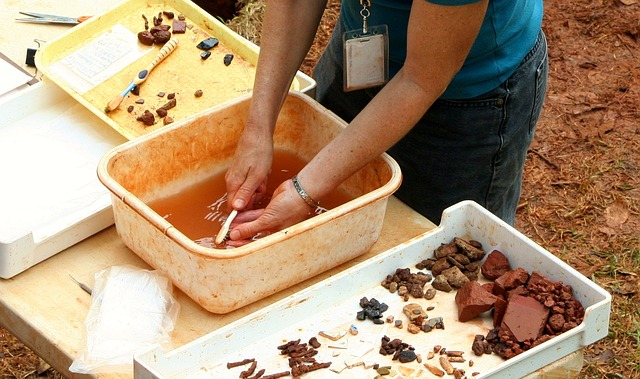
A team of archaeologists in Devon, UK discovered a Romano-British butcher's business and centre for crafts and researchers believe that the fourth-century slaughterhouse was established to prepare the best cuts of beef.
It should be noted when Roman had a large impact upon many places in Britain after they landed in AD 43. But until now researchers held the view that Devon was not largely affected by the Roman rule.
The archaeologists mentioned that the meat pieces were transported to the customers who used to stay miles away along a road dated back to the Roman era that was found at the archaeology site, at Ipplepen, near Newton Abbot in South Devon.
The archaeologists stated that the butcher worked alongside a string of talented craftsmen who were specialised in making deer antler, leather and textiles.
In this recent excavation, archaeologists found 1700-year-old cattle bones and the remains, which mostly included heads and feet of cattle.
After analysing the bones, experts suggested that during those days cattle were raised locally and then butchered after a certain age to fulfil the need for high-quality beef.
The Guardian reported that the lead researcher of this study Professor Stephen Rippon, from the University of Exeter, said that if the cattle had been raised and butchered by peasant farmers, then they would have boiled "the bits that have been thrown away and made something like brawn out of them."
"The normal practice would have been to keep the cattle into old age, pulling ploughs and so on. Our cattle were one and a half to two years old – which fits in with the idea of this being professional beef production," he further added.
The archaeology team believes that it is possible that those people used to store the meat in the barrels of salted water and then take them somewhere else which indicates towards the first evidence of commercial farming and butchery in the south-west of Britain.
Prof Rippon stated that the people would have taken the beef to market places located somewhere along the major Roman road which they found at the site.
"It is really rare to get animal bones preserved in rural archaeological sites in the south-west as its acidic soils normally dissolve the bones," he added.
During the excavation, they also found a piece of sawn deer antler, which they believe was used for making objects such as needles, combs, hairpin, iron weight and a stone weight. As per the team, this is the first time archaeologists have found evidence for Romano-British bone or antler working outside of Exeter in Devon.
After the discovery, Prof Rippon stated that "this all builds up a picture of Ipplepen as a settlement that is not a normal farming community but a place where craftsmen are making all sorts of things."








